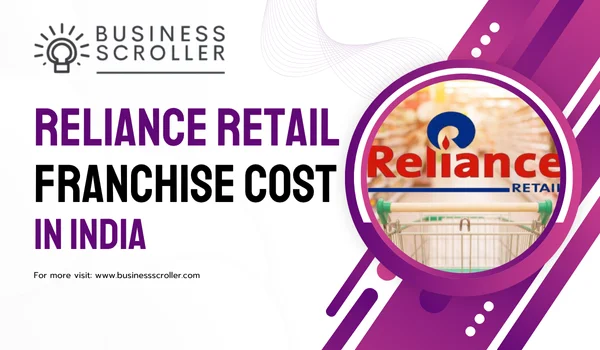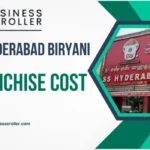Reliance Retail is India’s largest retail group, operating a portfolio of brands across grocery, electronics, fashion, speciality stores and digital retail (Reliance Fresh, Reliance Smart, Reliance Digital, Reliance Trends, Reliance Market, JioMart partner network, and more). If you’re evaluating a Reliance Retail franchise or partnership, this guide — written from an Indian franchise-expert viewpoint — explains likely franchise models, realistic cost ranges, ROI expectations, eligibility checklist and step-by-step application guidance. Where public data exists I cite official Reliance sources; where it doesn’t, I use industry comparables and cautious estimates.
Quick Summary Table
| Item | Typical / reported detail |
| Reliance Retail formats (examples) | Reliance Fresh, Reliance Smart, Reliance Market, Reliance Digital, Reliance Trends, JioMart partner stores. |
| Does Reliance offer franchises? | Mixed: some formats run partnership/partner networks (e.g., Reliance Market, JioMart partner stores); others are primarily company-owned. Public franchising details vary by format. |
| Typical investment (estimated, format dependent) | ₹25 lakh → ₹4+ crore (small partner/JioMart micro-store at low end; supermarket/large mall store or full electronics store at high end). |
| Payback / ROI (estimate) | 18–36 months (depends on format, location, operating discipline). |
| Official / corporate contact | info@ril.com / retail.secretarial.@ril.com; Reliance Retail customer care numbers listed on site. |
Which Reliance formats accept partners or franchise-type models?

Reliance’s businesses are run in multiple models:
- Company-owned stores — many large Reliance Digital / Reliance Trends / large Reliance Fresh outlets are opened and managed by Reliance Retail itself.
- Partner / member / franchise-like models — Reliance Market and JioMart Digital show clear partner/member models that enable local entrepreneurs and kirana-partners to participate in Reliance’s ecosystem. JioMart Digital in particular works with an extensive network of retail partners across India.
This means: a Reliance “franchise” opportunity depends on the brand/format. For some formats you’ll apply to be a partner/member (e.g., JioMart partner); for others, Reliance may prefer company-led expansion and only offer selective partnerships or lease arrangements in prime locations.
Estimated Costs
Because Reliance operates many formats, costs vary widely. Below is a practical estimate range by store type (based on industry benchmarks and Reliance-adjacent reports):
| Format | Typical investment range (₹) | Key cost drivers |
| JioMart partner / micro-kirana tie-up | ₹1–10 lakh | Minimal fit-out, onboarding, inventory financing, technology integration. |
| Small Reliance Fresh / convenience franchise (if offered) | ₹25–60 lakh | Fit-out, refrigeration, initial inventory, staffing, working capital. |
| Reliance Smart / supermarket (company-led or large partner) | ₹50 lakh – ₹2+ crore | Bigger store area, deeper inventory, logistics, staffing. |
| Reliance Digital / large electronics store (hypothetical franchise) | ₹1 – 4+ crore | High value inventory, showroom fit-out, service centre, warranty/after-sales capability. |
| Reliance Trends / apparel speciality (franchise-like) | ₹25 lakh – ₹1+ crore | Inventory breadth, mall rents, display, brand compliance. |
Note: These are indicative ranges. Exact numbers depend on city, mall vs high-street vs standalone, square footage, rent, brand format and Reliance’s current partner policy.
Likely ROI drivers & payback expectations
Return and payback depend on these variables:
- Format & ticket size: Grocery stores have faster inventory turns but lower margins; electronics have higher AOV (average order value) but slower turnover and higher working capital.
- Location & rent: Prime malls/city centres accelerate sales but raise fixed costs.
- Operational efficiency: Inventory turns, shrinkage control, supplier credit and staff productivity.
- Supply-chain & platform support: If Reliance provides inventory financing, marketing and technology via JioMart/partner programs it improves economics.
Typical payback for well-run Reliance partner stores (conservative estimate): 18–36 months after ramp-up. High-margin or very high footfall stores may recover faster; large format stores will take longer but deliver higher absolute profits.
Eligibility
While each program differs, common eligibility elements include:
- Capital availability for initial capex and 3–6 months working capital.
- Suitable premises (size and location as per format) or willingness to take on lease obligations.
- Retail / operations experience (helpful, often mandatory for larger formats).
- Regulatory compliance (GST, trade licenses, FSSAI for grocery, etc.).
- Commitment to brand & SOPs — adherence to price, quality, labour & service norms.
- Ability to meet minimum purchase or sales thresholds where stipulated.
For JioMart partner programs, Reliance has clearly documented partner onboarding and benefits — that’s typically the most accessible route for kiranas and smaller entrepreneurs.
Step-by-step: How to apply
- Decide the format you want to join (JioMart partner, Reliance Market, Fresh, Trends, Digital etc.). Each has different entry requirements.
- Check official partner pages (e.g., JioMart partner or Reliance Market membership pages) and read their partner onboarding docs.
- Prepare a business brief — location, store size, financials, retail experience and proposed investment.
- Contact Reliance Retail / format head — use corporate contacts or the partner forms (see contacts below).
- Site feasibility & due diligence — expect Reliance’s real-estate/ops teams to evaluate footfall and catchment.
- Negotiate terms & sign agreement — cover fees, inventory sourcing, performance clauses, renewal and termination terms.
- Fit-out & training — conform to brand guidelines, install POS/technology, train staff.
- Launch & operate with ongoing support and periodic audits.
Official contact & where to send franchise/partner queries
Start with Reliance Retail corporate & investor contacts, and ask to be directed to the specific brand/partnering team:
- Reliance Industries / Reliance Retail Corporate – General contact: info@ril.com.
- Reliance Retail – Investor / Retail secretarial contact: retail.secretarial.@ril.com (used in investor relations).
- Reliance Retail customer care / reach us pages list format-specific helplines and partner channels — check the brand page you’re targeting (e.g., Reliance Market, JioMart).
When you email, include: proposed city & site details, your experience, proof of funds, and ask for the specific partner/franchise brochure for that format.
Practical tips & red flags
- Get everything in writing: fees, inventory obligations, territory protection, renewal terms.
- Ask for a sample P&L based on your location (demand vs conservative case).
- Verify supply chain terms: will you be forced to procure at fixed prices? Is there credit?
- Check exit & performance clauses to avoid hidden penalties.
- Visit existing Reliance partner stores to study SKU mix, margins, customer behaviour.
Closing note
Reliance Retail offers powerful scale and brand pull — but “franchise” means very different things across its formats. The most accessible path today for smaller entrepreneurs is the JioMart / partner network or Reliance Market membership; large format stores are capital-intensive and often company-led. For exact packages, costs and partner criteria, reach out to Reliance via the contacts above and request the current partner/franchise brochure for the brand you want to join.

Shashi Kant is the Founder and Editor of BusinessScroller.com, a leading platform for business insights, finance trends, and industry analysis. With a passion for journalism and expertise in business reporting, he curates well-researched content on market strategies, startups, and corporate success stories. His vision is to provide valuable information that empowers entrepreneurs and professionals. Under his leadership, BusinessScroller.com has grown into a trusted source for in-depth articles, customer care guides, and financial expertise.



I want land for lease , for contact
Robin
9928276534
Dear sir
I want reliance smart bazar franchise
Please share me your contact number
9423030225
My mobile number
With a business